Journey into the shadowy world of the Dixieland Mafia Hitman, where Southern charm meets deadly intentions. In this gripping tale, uncover the life of a notorious enforcer who turned the streets of the Deep South into a playground for crime, deception, and cold-blooded murder. From shocking betrayals to high-stakes power plays, this story pulls you into the dark heart of organized crime, where danger lurks behind every friendly smile.
Table of Contents
The Dixieland Mafia
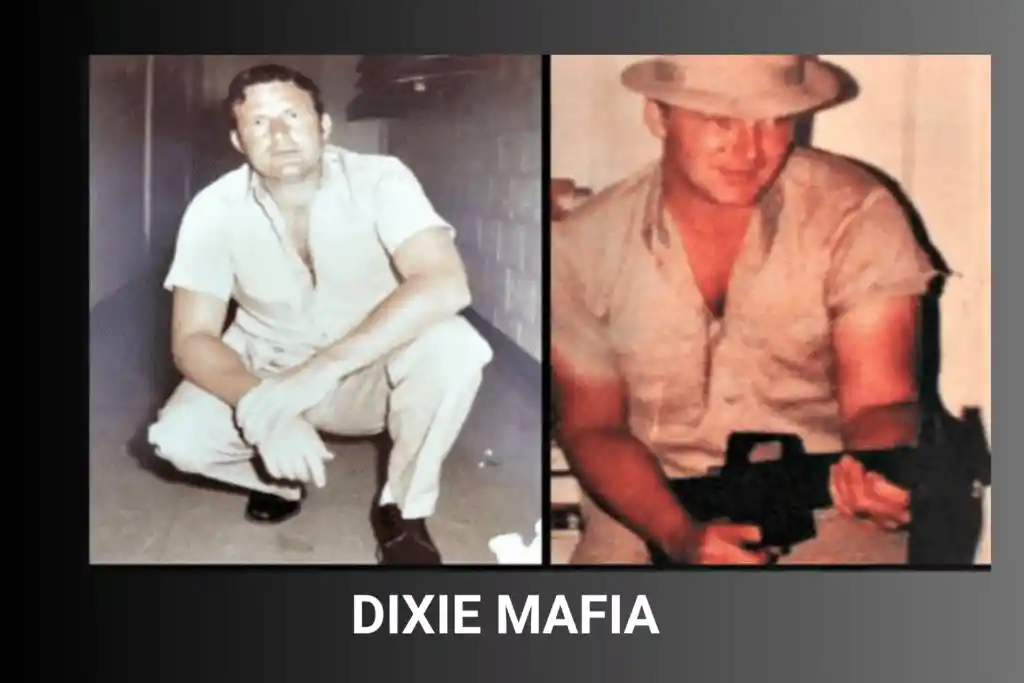
The Dixieland Mafia (Dixie Mafia) was a loosely organized crime group formed in the Southern United States mid-20th century. Unlike the more structured Italian Mafia, the Dixie Mafia was less hierarchical and more predatory. They consisted of individuals and small gangs sharing similar illegal interests, working together loosely and decentralised.
The Dixieland Mafia had connections with local and state officials, helping them carry out their activities. They often displayed a strong culture of violence and intimidation. They used this to enforce loyalty and settle disputes, both inside the group and with rival factions.
The group committed many crimes, including drug trafficking, gambling, extortion, and murder. They based their actions on a strong code of silence and loyalty among members. They owned or managed many strip clubs in Biloxi, Mississippi, as fronts for other illegal activities. People knew the Dixie Mafia for using a group of dangerous hitmen.
The Role of Hitmen
Hitmen played a crucial role in the Dixie Mafia’s operations, acting as enforcers and ensuring compliance. They often accepted jobs to carry out murders for profit or to protect the group’s interests. These individuals were typically skilled in the use of firearms and had a reputation for brutality and efficiency.
Hitmen were often local criminals who were important for keeping the group’s power and influence. They used violence to solve problems and eliminate enemies, causing fear for the public and their opponents.
This allowed them to control their areas and run their criminal activities without much trouble from the police.
Notable Hitmen
Billy Sunday Birt
Billy Sunday Birt was a famous hitman for the Dixie Mafia. People knew him for being remarkably efficient and willing to kill for money. He said he killed as many as 27 people, and his scary confessions show a glimpse of the dark side of the group. He also committed many other crimes, including armed robbery, kidnapping, and arson.

Birt often shared details about the victims, describing how he killed them and mentioning where he hid the bodies. He said his actions were because of a difficult childhood, a wish for money and power, and not feeling sorry for his victims. Some of his claims have support from evidence and witness statements.
Read more in our article about the chilling details of Jeffrey Dahmer and his horrific crimes.
Kirksey Nix
Kirksey Nix was not a hitman, however, he was a ringleader of the Dixie Mafia. He planned many contract killings from his prison cell at Louisiana State Penitentiary. Nix targeted gay men, using personal ads to deceive them into relationships and then stealing their money. He was so smart and tough that other members looked up to him and followed his lead.
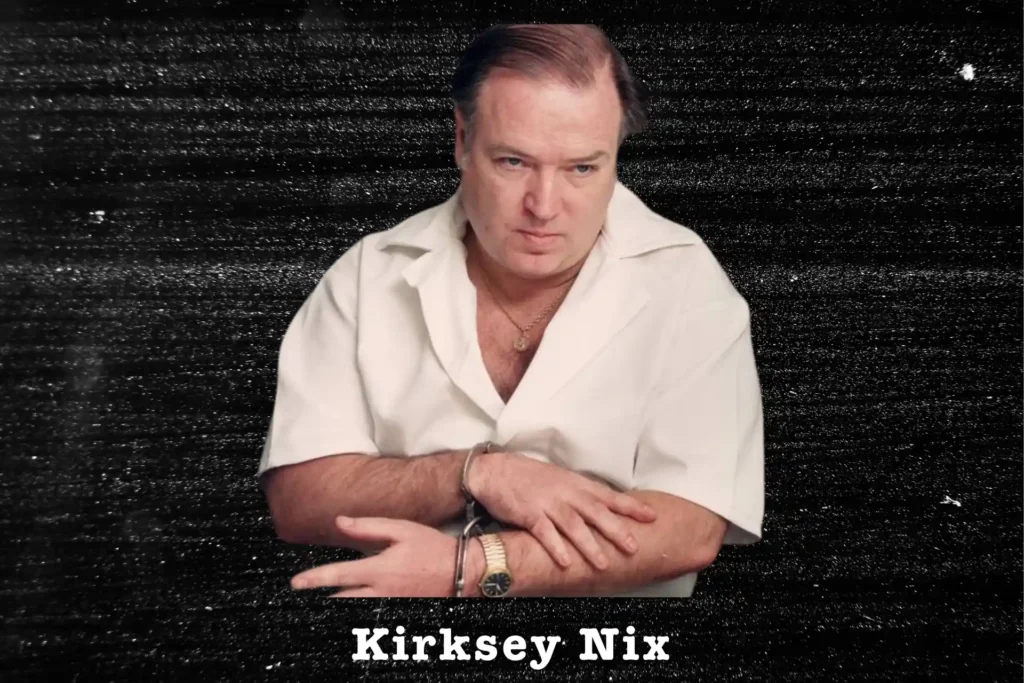
In Gulfport, Mississippi, Nix shot and killed Judge Vincent and Margaret Sherry in their home. His motive was retribution, believing Sherry had stolen money from him. Authorities charged and convicted former mayor Pete Halat for his involvement in the Sherry murders.
Nix’s crimes caught up with him, leading to convictions for racketeering, conspiracy, and murder-for-hire. He is currently serving a life sentence in prison.
Mike Gillich
Mike Gillich Jr. was a major player in the Dixie Mafia, helping them with their crimes. He earned the trust of nearly every member, becoming their go-to person and handling their money. He owned businesses on Biloxi’s “The Strip” that he used for illegal gambling, prostitution, and other crimes.
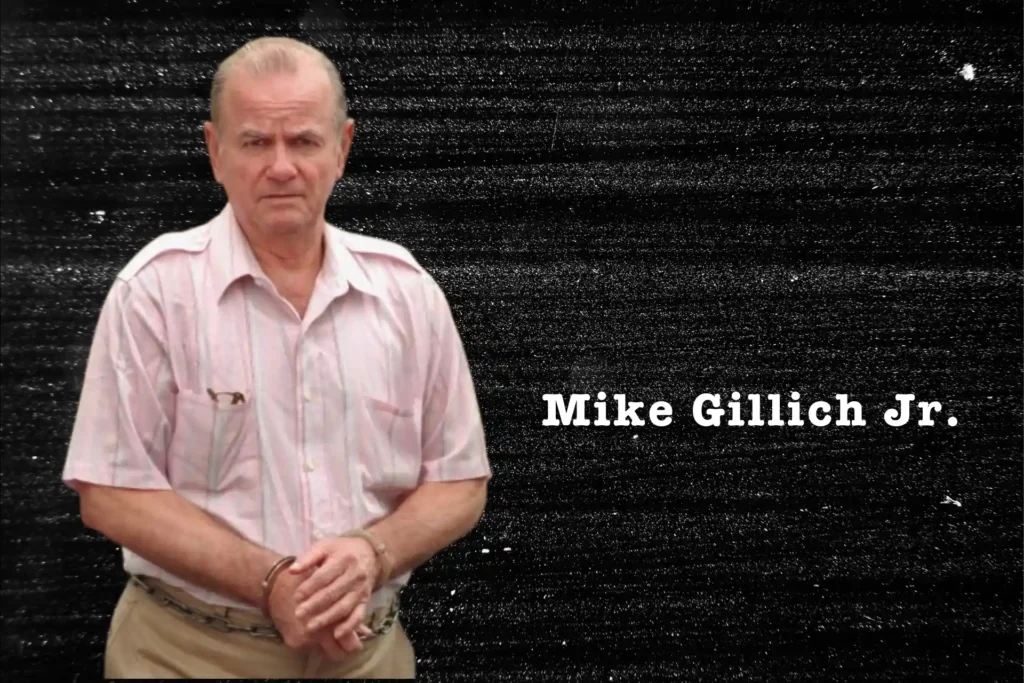
A court found Gillich guilty of conspiring in the 1987 murders of Judge Vincent Sherry and his wife, Margaret. Authorities caught him on tape pressuring his girlfriend to bribe a witness to influence the trial’s outcome. While serving his twenty-year sentence, he died in 2012.
Richard Jewell, a security guard, was falsely accused of the 1996 Centennial Olympic Park bombing in Atlanta. Jewell was initially lauded as a hero for detecting the device and assisting in the evacuation, but FBI profiling and intense media attention rapidly turned him into the major suspect. Despite not being charged, the public accusations turned his life upside down. The genuine bomber was eventually located, but Jewell’s case serves as a sobering reminder of how easily someone can be falsely accused and the long-term consequences of such charges.
Similar “Murder” Stories
- Susana Morales: 16-Year-Old Abducted and Murdered by Stalker Cop
- Chad and Lori Daybell: Religious Extremist Murderers of “Dark Spirits and Zombies”
- Brice Rhodes: Recruited Teens in Violent Triple Murder
Decline of Dixieland Mafia
Group members often engaged in organized crime that extended beyond the South. However, their influence started declining in the late 20th century.
Law enforcement agencies worked harder to fight organized crime, leading to many arrests and trials. These actions greatly weakened the group’s structure. Also, more sophisticated and international criminal networks changed the nature of organized crime. The Dixie Mafia struggled to compete with these new players in the criminal underworld.
Media attention and public awareness of the Dixie Mafia’s activities put pressure on law enforcement to take action. This scrutiny made it more difficult for the organization to operate openly and maintain its influence. The imprisonment or deaths of important members, such as Kirksey Nix and Billy Sunday Birt, hindered the enterprise.
Discover the chilling details behind the shocking case of Chris Watts: Killer Husband Murders Wife, a story that will leave you questioning everything you thought you knew about trust and betrayal.
The Legacy of the Dixie Mafia
The legacy of the Dixie Mafia shows the mix of crime, politics, and society in the Southern United States. Books, documentaries, and movies have featured the group’s activities. These works show their crimes, the culture, and history around them.
Their legacy serves as a reminder of the dangers of organized crime and the importance of upholding the rule of law.
Curious about the connection between zodiac signs and infamous criminals? Check out our Top 20 Serial Killers Zodiac Signs to explore eerie similarities between astrological traits and criminal behavior.
Books & Resources
Read “Mississippi Mud: Southern Justice and the Dixie Mafia”
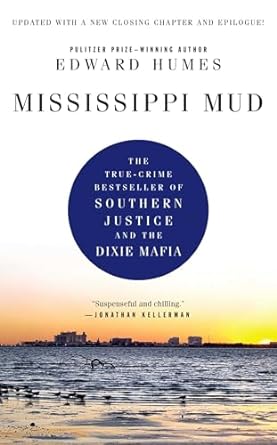
A shocking murder tears through the veneer of a Southern city, revealing a web of corruption that extends to its very core. This gripping true-crime story will leave you breathless as it exposes the dark secrets buried beneath the surface of a seemingly idyllic community.
Watch “The FBI Files (Season 2, Episode 7)”
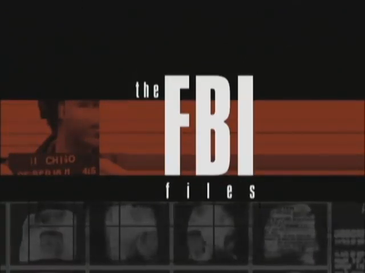
Dixie Mafia: Tragedy strikes Mississippi’s Gulf Coast as a prominent judge and his wife are found murdered in their own home.
FAQs
Is the Dixieland Mafia real?
Yes, the Dixie Mafia was a real criminal organization, primarily active in the Southern United States during the mid-20th century.
Is Dixie Mafia still active?
While the Dixie Mafia’s influence has significantly diminished since its peak, remnants of the organization and its legacy of corruption and crime still linger in some parts of the South.
Who is the leader of the Dixie Mafia?
The Dixie Mafia, being a loose network rather than a hierarchical organization, didn’t have a single, definitive leader, though Kirksey Nix and Mike Gillich, Jr. are often considered the most influential figures during its peak.
Who runs The Mafia today?
The Mafia today is not run by a single individual but by several families, primarily in the U.S. and Italy. In the U.S., the Five Families of New York (Gambino, Genovese, Lucchese, Colombo, and Bonanno) still hold influence, each led by their own boss. Leadership often shifts due to arrests or internal conflicts, making it hard to identify one specific leader at any given time.